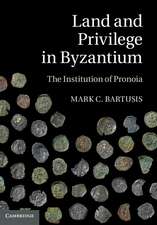German Expansionism, Imperial Liberalism and the United States, 1776–1945
Autor Jens-Uwe Guettelen Limba Engleză Paperback – 7 oct 2015
| Toate formatele și edițiile | Preț | Express |
|---|---|---|
| Paperback (1) | 206.39 lei 6-8 săpt. | |
| Cambridge University Press – 7 oct 2015 | 206.39 lei 6-8 săpt. | |
| Hardback (1) | 693.36 lei 6-8 săpt. | |
| Cambridge University Press – 16 dec 2012 | 693.36 lei 6-8 săpt. |
Preț: 206.39 lei
Nou
Puncte Express: 310
Preț estimativ în valută:
39.50€ • 41.08$ • 32.61£
39.50€ • 41.08$ • 32.61£
Carte tipărită la comandă
Livrare economică 12-26 aprilie
Preluare comenzi: 021 569.72.76
Specificații
ISBN-13: 9781107622616
ISBN-10: 1107622611
Pagini: 292
Dimensiuni: 152 x 229 x 17 mm
Greutate: 0.43 kg
Editura: Cambridge University Press
Colecția Cambridge University Press
Locul publicării:New York, United States
ISBN-10: 1107622611
Pagini: 292
Dimensiuni: 152 x 229 x 17 mm
Greutate: 0.43 kg
Editura: Cambridge University Press
Colecția Cambridge University Press
Locul publicării:New York, United States
Cuprins
Acknowledgments; Abbreviations; Introduction; 1. Soil, liberty, and blood: Germans and American westward expansion before 1871; 2. From theory to practice: German colonialism and American westward expansion before the Great War; 3. The American South and racial segregation in the German colonies; 4. America, race, and German expansionism from the Great War to 1945; Conclusion. Imperial liberalism, Nazi expansionism, and the continuities of German history; Bibliography; Index.
Recenzii
'This impressive monograph offers a provocative new look at Germany's imperial imaginary. Jens-Uwe Guettel expertly shows how pre-World War I German liberal imperialists were attracted to the United States because they saw it as a model empire and racial state. Here, then, is a tightly argued intellectual history of a transatlantic connection and its legacy, a history that takes its readers beyond notions of national exceptionalism and linear continuities and asks us to rethink both the trajectories of nineteenth-century liberalism and the origins of Nazi imperialism.' Dirk Bönker, Duke University
'Nuanced and compelling, Jens-Uwe Guettel's fascinating study of the deep and complex entanglement of German and American 'imperial liberalism' offers many new insights that promise to reshape the debates over German and American exceptionalism. This is a most welcome contribution to the transatlantic history of ideas and colonial practices that will help bridge historiographical divides.' Erik Grimmer-Solem, Wesleyan University
'Guettel's book makes several important historiographical interventions, regarding transnational history, the nature of liberalism, continuities of empire, and German exceptionalisms. It is informative, mind-changing, and brilliant.' Lora Wildenthal, Rice University
'Jens-Uwe Guettel simultaneously challenges American and German exceptionalism by revealing how the United States served as a model for German expansionism in Europe and overseas in the long period from the American Revolution to the end of the Second World War. German Expansionism, Imperial Liberalism, and the United States, 1776–1945 portrays imperial liberalism in its full complexity, beyond the bowdlerized Atlanticism cooked up to nourish Cold War alliances. It will be of great interest to readers interested in political thought, imperial and colonial studies, and transnational history.' Andrew Zimmerman, George Washington University
'Guettel's book is admirable for a number of reasons. It expertly dissects the twin myths that U.S. expansionism was uniquely devoid of violent, imperialist characteristics, and that the history of German imperialism is somehow reducible to proto-Nazi violence … The book also successfully contextualizes prewar German imperialism within a liberal milieu which shared a set of assumptions with its American counterpart regarding the correct forms of imperial penetration and the requisite means for dealing with recalcitrant indigenous populations … As Guettel shows, imperialism and the forms of socio-racial knowledge it engendered were an integral part of liberalism on both sides of the Atlantic.' H-Diplo (h-net.org/~diplo)
'This ambitious work is at once a major contribution to transnational history and a provocative meditation on the nature of nineteenth-century German liberalism. In short, Guettel has crafted an insightful, stimulating, and well-argued contribution to the history of ideas.' Larry L. Ping, German Studies Review
'Nuanced and compelling, Jens-Uwe Guettel's fascinating study of the deep and complex entanglement of German and American 'imperial liberalism' offers many new insights that promise to reshape the debates over German and American exceptionalism. This is a most welcome contribution to the transatlantic history of ideas and colonial practices that will help bridge historiographical divides.' Erik Grimmer-Solem, Wesleyan University
'Guettel's book makes several important historiographical interventions, regarding transnational history, the nature of liberalism, continuities of empire, and German exceptionalisms. It is informative, mind-changing, and brilliant.' Lora Wildenthal, Rice University
'Jens-Uwe Guettel simultaneously challenges American and German exceptionalism by revealing how the United States served as a model for German expansionism in Europe and overseas in the long period from the American Revolution to the end of the Second World War. German Expansionism, Imperial Liberalism, and the United States, 1776–1945 portrays imperial liberalism in its full complexity, beyond the bowdlerized Atlanticism cooked up to nourish Cold War alliances. It will be of great interest to readers interested in political thought, imperial and colonial studies, and transnational history.' Andrew Zimmerman, George Washington University
'Guettel's book is admirable for a number of reasons. It expertly dissects the twin myths that U.S. expansionism was uniquely devoid of violent, imperialist characteristics, and that the history of German imperialism is somehow reducible to proto-Nazi violence … The book also successfully contextualizes prewar German imperialism within a liberal milieu which shared a set of assumptions with its American counterpart regarding the correct forms of imperial penetration and the requisite means for dealing with recalcitrant indigenous populations … As Guettel shows, imperialism and the forms of socio-racial knowledge it engendered were an integral part of liberalism on both sides of the Atlantic.' H-Diplo (h-net.org/~diplo)
'This ambitious work is at once a major contribution to transnational history and a provocative meditation on the nature of nineteenth-century German liberalism. In short, Guettel has crafted an insightful, stimulating, and well-argued contribution to the history of ideas.' Larry L. Ping, German Studies Review
Notă biografică
Descriere
This book traces the connections between American westward expansion and German colonialism from the late eighteenth century to World War II.













